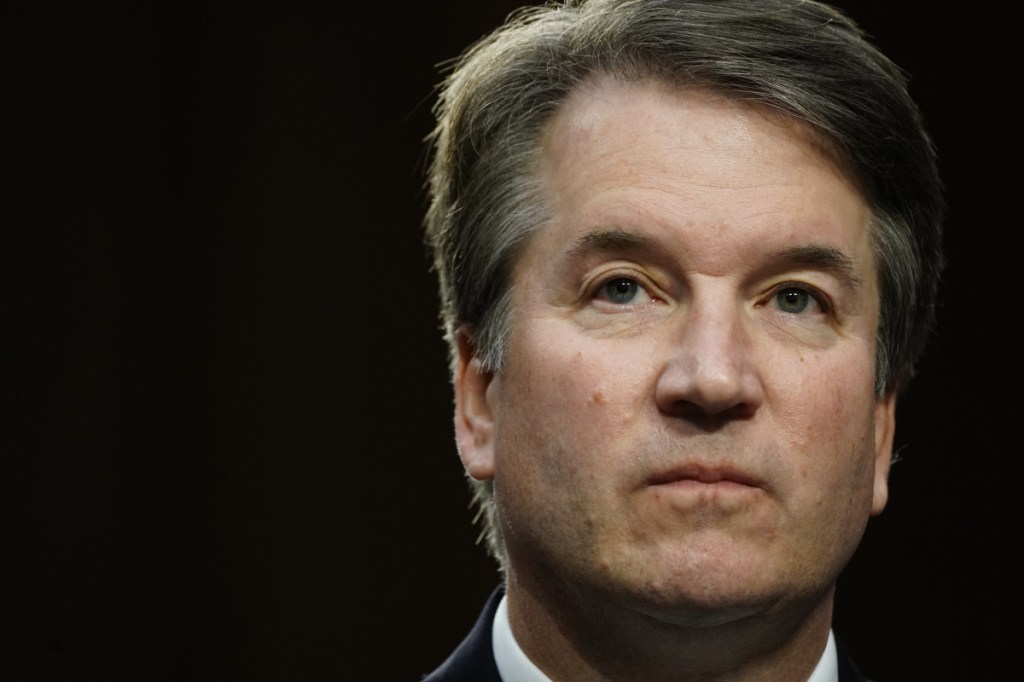The recent fight over the nomination of Brett Kavanaugh to replace Anthony Kennedy on the Supreme Court was a disgraceful display for this country, but not just for the reasons you might think.
It wasn’t just disgraceful because of how both Kavanaugh and his accuser, Christine Ford, were treated by the Senate Judiciary Committee and partisan operatives on both sides.
If one is inclined to believe her testimony, one must also take her at her word that she wanted her letter to remain private – which means that someone in Congress or a member of their staffs leaked the letter against her wishes. Sen. Susan Collins was right in her speech when she said that doing so was unconscionable. Constituents ought to be able to expect that something they share privately with members of Congress isn’t exploited for partisan political gain in public.
Nominees — even for the United States Supreme Court — ought to be considered innocent of accusations until there’s proof of their guilt, and it’s disgraceful that Brett Kavanaugh wasn’t afforded that opportunity. Instead, U.S. senators who had already made up their mind about his nomination used the accusation against him to delay the vote and sway their few undecided colleagues. Many of them didn’t seem to really care whether he was innocent or guilty — instead the accusation was misused as just another partisan stalling tactic. For them, the accusation against Kavanaugh was just one more excuse to vote against him, rather than a good reason to change their mind (in either direction).
None of that, though, was the biggest problem with the battle over Kavanaugh’s nomination.
The biggest problem was just how ridiculously partisan the whole fight became — just like other recent Supreme Court nominations. Rather than enlightening and informing the public, these confirmation hearings have become bitter brawls in which both sides will do anything to derail the other party’s nominee. That’s left the decision of who will sit on the Supreme Court down to a few senators — less than a half dozen out of 100.
Contentious hearings and sharply divided votes aren’t an entirely new facet to the nomination process, of course, nor are allegations of misconduct. Clarence Thomas was only narrowly confirmed by a Democratic Senate after Anita Hill accused him of inappropriate behavior, but it was still a bipartisan vote in his favor: 11 Democrats voted to confirm him. He is the last justice to be confirmed by a Senate controlled by a different party than the president who appointed him.
After Thomas, Ruth Bader Ginsburg and Stephen Breyer sailed through their confirmations, John Roberts faced more opposition, but was also easily confirmed. The vote was closer on Samuel Alito, but Sonia Sotomayor and Elaine Kagan were confirmed without much trouble, even though the GOP could have blocked those nominations with a filibuster.
Prior to recent events, it was generally agreed that Republican presidents would get to appoint conservative jurists, Democrats would appoint more liberal ones, and as long as they were qualified and fit for office they’d be confirmed, probably with overwhelming bipartisan support. There might be a few ideologues who’d solely oppose or support a nominee for political reasons, but they were few and far between, safely ensconced in the minority in both parties.
Now, those ideologues have become the majority, while we look askance at those few moderate senators who prioritize experience and qualifications above partisanship. Ironically, the takeover by the ideologues has rendered them less powerful; they’ve essentially chosen to forfeit their own role in the advise and consent process.
This was readily apparent during the early stages of the Kavanaugh confirmation when Democrats were shouting from the rooftops about being denied access to records from Kavanaugh’s service in the Bush administration. The Democrats’ problem wasn’t just that they were in the minority, but that their arguments weren’t taken up by the few undecided senators.
The process has become so partisan not just because of the takeover by ideologues, but because increasingly both parties view the Supreme Court not as an independent arbiter but rather as the continuation of politics by other means.
That’s truly a tragedy, and one that could be readily avoided by the pragmatists in both parties reasserting themselves and taking back control from the extremists. In the past, one party could count on the other party’s leadership to reign in the extremists; now they’re the ones in charge, and each party depends on the Supreme Court as a stopgap instead. That’s a dangerous situation for our democracy to be in, as it encourages us to increasingly view another institution in partisan, tribal terms, which will only further divide this country.
Jim Fossel, a conservative activist from Gardiner, worked for Sen. Susan Collins. He can be contacted at: jwfossel@gmail.com.
Send questions/comments to the editors.



Success. Please wait for the page to reload. If the page does not reload within 5 seconds, please refresh the page.
Enter your email and password to access comments.
Hi, to comment on stories you must . This profile is in addition to your subscription and website login.
Already have a commenting profile? .
Invalid username/password.
Please check your email to confirm and complete your registration.
Only subscribers are eligible to post comments. Please subscribe or login first for digital access. Here’s why.
Use the form below to reset your password. When you've submitted your account email, we will send an email with a reset code.